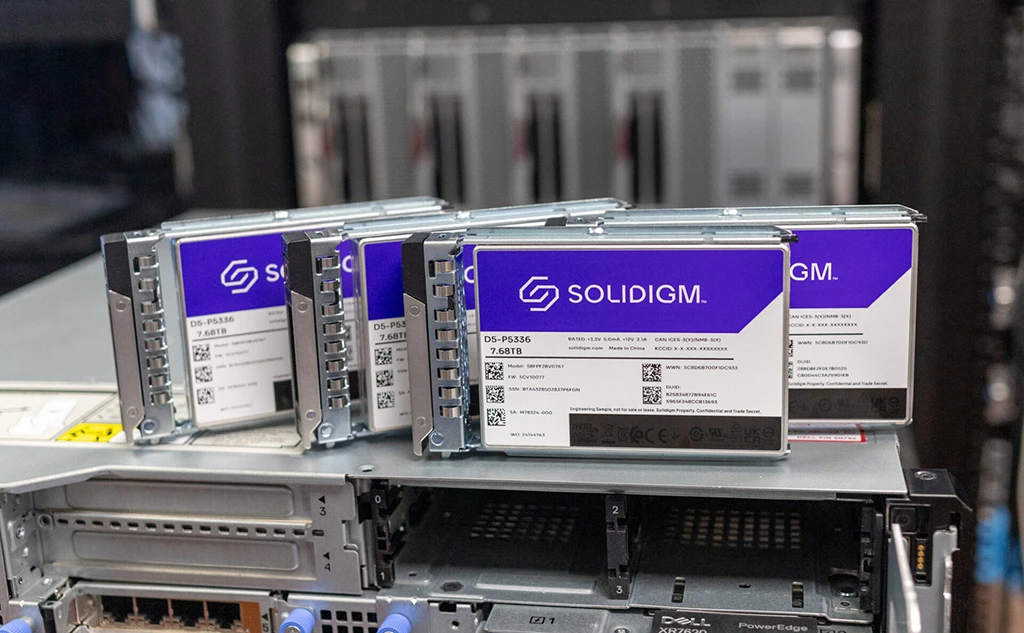Big, Fast, Bold QLC SSDs for Large Unstructured Datasets
When customers want to extend their data pool by several petabytes, they have limited options for servicing unstructured datasets with fast PCIe SSDs. At Solidigm, we have a unique product portfolio structured to give data center customers better solutions to meet their needs. We are the only vendor to offer both QLC and TLC technologies based on floating gate and charge trap making technologies.


Together with our industry-leading expertise, our product line is uniquely positioned to address storage pain points such as aging gear, lack of capacity, and high costs. As data-rich services increase, Solidigm QLC SSDs can rapidly access more data, more efficiently. Not only that: at a system level, they can also perform just as well as more expensive TLC-based SSDs. Check out the tests performed by StorageReview with the Solidigm D5-P5316.
Additionally, the capacity of Solidigm QLC drives leads to footprint consolidation, and thus, TCO savings, making them the perfect fit for partners like Dell PowerScale. Dell’s PowerScale family of all-flash nodes are designed to be reliable at any scale. No matter the type of data, where it lives, or how large it is, PowerScale makes it easy to manage.
The PowerScale F900 and F600 are now equipped with Solidigm D5-P5316 QLC SSDs to deliver top-of-the-line performance and huge capacity. In fact, with Solidigm QLC SSDs, PowerScale can pack up to 186 PB in a 252-node cluster. Dell believes that PowerScale is the most flexible and secure scale-out NAS solution on the market, and Solidigm plays an integral role in powering the nodes that put it on top.
David Noy, VP of Product Management at Dell, recently recorded a podcast with StorageReview where he discussed the future of PowerScale and the impact of Solidigm QLC SSDs. David explained that in PowerScale, Dell uses staged writes, causing less of a write amplification impact on the drives. Combining this implementation with insights gained from field data, PowerScale can extract 14 years' worth of endurance from the D5-P5316.
Furthermore, pre-fetch and performance optimizations lead to the same performance from TLC and QLC drives. Dell has put Solidigm drives to the test, duplicating punishing field environments, and they are comfortable touting the benefits of QLC to their customers.
Aside from exceptional endurance and performance, switching to Solidigm’s QLC technology also provides a clear capacity advantage. QLC-powered PowerScale systems provide 4 – 8 times the capacity of traditional TLC SSDs, with almost 1 PB of storage in a 2U chassis. When you consider the lower price point, increased capacity, and now-proven performance parity over TLC technology, QLC is the clear path forward for data-rich environments.
Dell customers are demanding greater density, and Solidigm is delivering. In 2023, we are launching our 4th generation of QLC SSDs and will go from a maximum 30.72 TB SSD offering to a 61.44 TB SSD offering. Read more about our current QLC offerings, and how they are being deployed in the Dell PowerScale all-flash NAS systems.